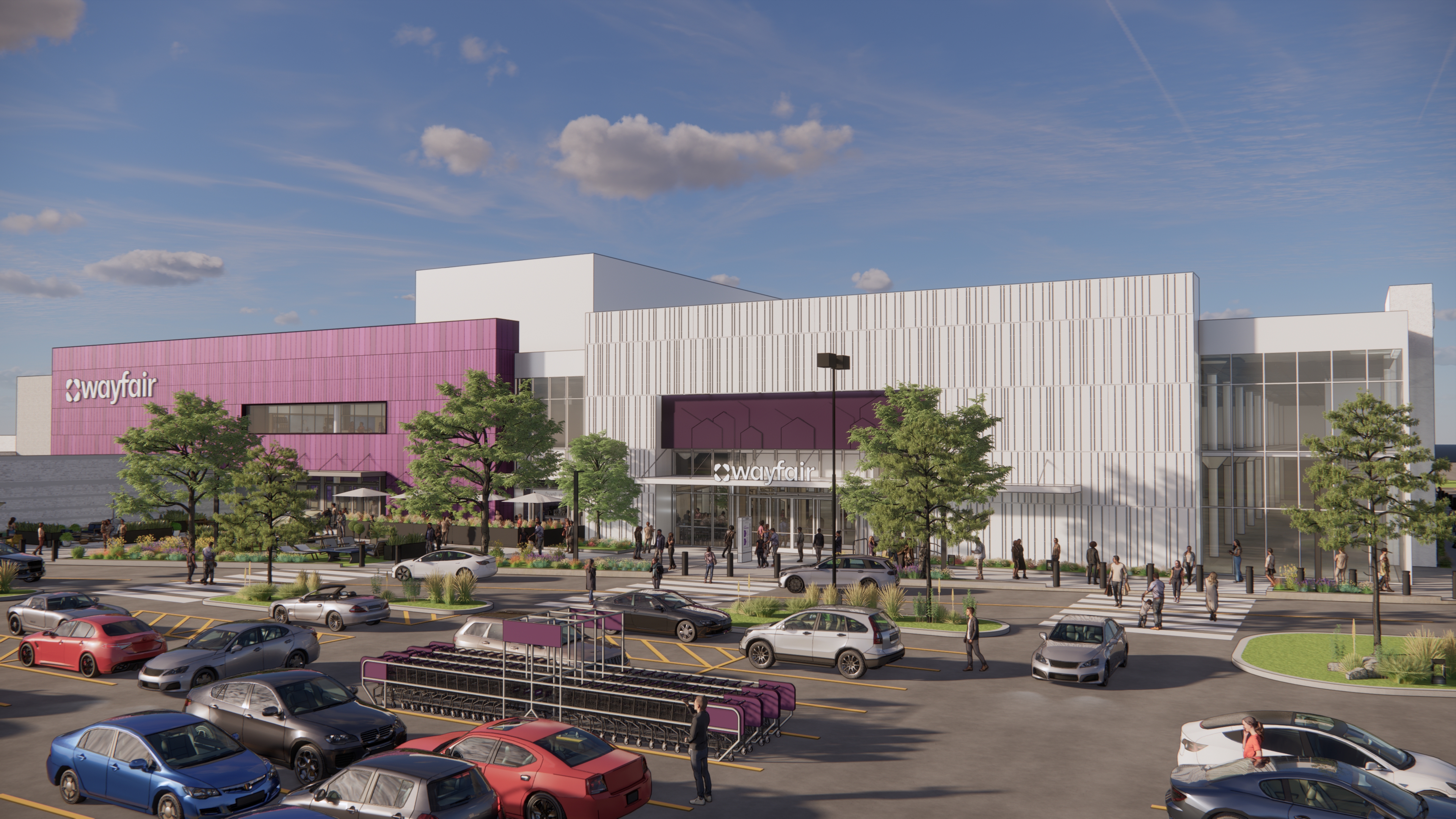In the early 1980s, the steel industry collapsed in Chicago. Wisconsin Steel and U.S. Steel, two Southeast Side mills which had once employed tens of thousands of workers, were shut down. Ald. Edward Vrdolyak, who represented the neighborhood on the City Council, used the economic desperation of his constituents to build a political machine, dispensing city jobs to precinct captains who promised loyalty and ruthlessness in exchange. When Vrdolyak defected to the Republican Party, his precinct captains defected to the Daley family, becoming the Hispanic Democratic Organization. This is an excerpt from Nothin’ but Blue Skies: The Heyday, Hard Times and Hopes of America’s Industrial Heartland, released Tuesday by Bloomsbury Press. Author Edward McClelland will discuss and sign the book Tuesday at 6 p.m. at Barnes and Noble, 1 E. Jackson St., Chicago, and Wednesday at 7 p.m. at Anderson’s Bookshop, 111 W. Jefferson St., Naperville.

Book Excerpt: When the Steel Mills Died, the Hispanic Democratic Organization was Born
Alderman Vrdolyak’s vow to reopen Wisconsin Steel had turned out to be empty. He’d failed to save U.S. Steel, as well. The mills had assisted Vrdolyak’s political rise. By the time the steel crisis struck his ward, Vrdolyak was not only the most prominent member of the City Council, he was chairman of the Cook County Democratic Party’s Central Committee: boss of the most powerful political machine in America. No politician in Chicago controlled more patronage, but Vrdolyak demanded a price: votes, from the jobholder and every member of his extended family. The mills had been Vrdolyak’s path to power. After the mills closed, Fast Eddie used that power to keep control of his ward by handing out city jobs -- which made him even more powerful, because the jobholders didn’t report to U.S. Steel, they reported to Eddie.
Latinos were easy—and desirable—recruits. They had a lot of kids, which made the men desperate for work, and they had a lot of aunts, uncles, nieces, nephews and cousins who could be told “Vote Vrdolyak.” Because of the mills, Latinos had lived in South Chicago longer than in any part of Chicago. They had their own church—Our Lady of Guadalupe—and they were tolerated by Stosh and Chester at the ironworkers’ tavern, who figured it was them or the colored. Tony Navarro and Al Sanchez both grew up in South Chicago, and both worked for the city at Vrdolyak’s sufferance. Navarro was a plumber. Sanchez was a community resource specialist in the Department of Human Service, a liaison between City Hall and the neighborhood, able to dole out favors. In exchange for Vrdolyak’s clout, the young Latinos hustled precincts for the boss.
“When the steel mills were going, nobody needed the politics,” Navarro said. “They were making big money in the steel mills. When the mills went down, it was a whole different ballgame. People were begging for jobs. I had so many guys I knew in the ’80s that lost their families, wives left them because they lost their jobs. They went to drugs, selling drugs. Went to jail.”
Selling your family’s vote to the Anglo (if you could call a guy named Vrdolyak an Anglo) jefe was a minor humiliation compared to destitution, divorce and the Illinois Department of Corrections. Suddenly popular, Navarro was visited by a frantic steelworker who wanted to know how to get hired by Vrdolyak.
“How big is your family, Danny?” Navarro asked the laid-off dad.
“Thirty, forty,” Danny said.
“Write ’em all down, make an appointment to see that mother****er Al Sanchez,” Navarro instructed. “Tell him you’ll kiss his ass on State and Madison and everyone in your family will, too. You’ll get the job.”
Danny did as he was told, and was granted a job on a garbage truck.
“Tony,” he said the next time he saw Navarro. “I could kiss your ass right now. He’s going to give me a job.”
Now that Chicago politics had arrived in this most isolated corner of Chicago, Vrdolyak became much more than an emissary to City Hall from a distant, misunderstood province. He was the local don. East Siders directed visitors to his keep, which was one of their few remaining tourist attractions. The house was twice as large as the surrounding bungalows. So was the yard: Vrdolyak had taken over an alley to make room for his swimming pool and tennis court. In a blue-collar neighborhood, he was the guy who’d made it big. With his University of Chicago law degree, he built a firm that occupied a block-sized building, with the name “EDWARD R. VRDOLYAK” in two-foot high letters.
Every election, Vrdolyak had a new plan for Wisconsin Steel.
“I’m going to tell them I’m reopening Wisconsin Steel,” he told his precinct captains before appearing at a rally with Mayor Jane Byrne, Harold Washington’s predecessor.
“You’re a f---in’ liar,” one brave captain accused him.
“I don’t give a f---,” Vrdolyak said. “I’m going to tell ’em anyway.”
Failing to bring back the mills was not Vrdolyak’s downfall. Vrdolyak was the face of the white ethnic backlash against Mayor Harold Washington. After the ethnics lost their City Council majority to a mongrelized caucus of blacks, Latinos, WASPs and Jews, Vrdolyak made a decision guaranteed to kill any political career in Chicago: he ran for mayor as a Republican. His Latino precinct captains refused to follow their boss into the party of Ronald Reagan.
“Hey, that’s it,” Navarro told Vrdolyak. “I cannot knock on a black or a Latino door and tell them, ‘We’re Republican.’ And you just lost your job in a steel mill? I’d get my ass kicked.”
Instead, they defected to a bigger boss. After Harold Washington died, Richard M. Daley, son of the Old Man, prepared to run for mayor. Young Daley recognized that Latinos were the swing vote in Chicago. They had joined a black-and-brown coalition to elect Washington, but if Daley could entice them into a white-and-brown coalition, he could take over the city. In the back room of a South Chicago tavern, one of Daley’s henchmen made a promise.
“We need you guys,” he said. “We’re glad you left Vrdolyak. We’re going to take you. And we’re going to give jobs, jobs, jobs… Jobs for you and all the Latinos you can bring with us. We want you guys to be our minority, because we’re already sick of that other minority. We don’t want that other minority.”
“We don’t care how you use us,” Sanchez told the official. “Our guys are starving. We need the jobs.”
That declaration of reality was the birth of the Hispanic Democratic Organization -- HDO, for short -- the toughest political mob in Chicago. With the mills gone, only the city offered well-paying blue-collar jobs for joes with a high school education—or less. And only Sanchez, who had been promoted to Assistant Superintendent of Streets and Sanitation, could distribute those. He reached beyond laid-off steelworkers to members of the Latin Kings, Latin Counts and Maniac Latin Satan’s Disciples—loyal, ruthless gangbangers who would pull any dirty trick in exchange for a spot on a garbage truck.
“That’s how Al Sanchez rose to power,” Navarro said. “he took every thug that was starving and gave ’em a city job. They’d kill for you. He collected more kickback money, you wouldn’t believe. They were so grateful.”
After helping to elect John Pope -- Mayor Richard M. Daley’s anointed candidate -- as alderman of the 10th Ward, Sanchez was promoted to Commissioner of the Department of Streets and Sanitation. Over the next six years, 63 HDO members from Sanchez’s neighborhood got city jobs.
“Al put every drug dealer, thug and arsonist from the 10th Ward to work,” Tony Navarro said. “Anybody today that’s got a decent job in the 10th Ward is working for the police department, the fire department, the Chicago Park District or the county. Anybody outside of that doesn’t have a job.”
In exchange for their jobs, Sanchez’s employees washed his windows and mowed his lawn. This was revealed at Sanchez’s federal corruption trial, during which he was also accused of hiring a garbage truck driver whose only previous experience was behind the wheel of a U-Haul. The woman submitted her application in a biker bar that functioned as an HDO clubhouse. Once on the job, she backed the truck into a co-worker, pinning her against a telephone pole and fracturing her pelvis. Sanchez got two-and-a-half in the federal pen for handing out jobs to political cronies. His mentor, Ed Vrdolyak, also ended up in prison, on a mail fraud charge connected to a real estate kickback scheme. Fast Eddie slowed down in his old age, and the feds caught up with him.


